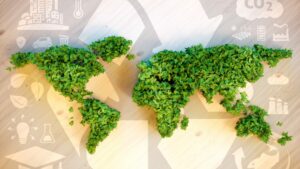How to avoid Greenwashing while working towards real sustainability goals
Almost everyone is familiar with the UN’s Sustainable Development Goals (SDGs): the 17 global goals set out by the UN back in 2016. Many companies have built parts of them into their strategic plans; some have gone further to include Environmental, Social and Governance (ESG) goals in their governance structures. For those who are truly committed, there are now certifications available to prove follow-through on specific ‘good for all’ goals.
While the purpose of the UN’s SDG goals and companies’ ESG goals are commendable, change is difficult. Some companies may choose to make bold promises without taking action. And, in some cases, it’s simply not possible to shift immediately from older, now questionable technologies or materials to newer, greener options.
Still, some companies are successful – often thanks to great cost and effort – at making the switch to more sustainable practices. Unfortunately, they too often find themselves unfairly accused of greenwashing if they try to celebrate or promote their actions in order to garner support or sales. The reality is that, without being able to showcase their achievements in order to justify things like higher pricing, it’s impossible to cover development costs or higher priced inputs, which ultimately means some of these improvements may never make it out of the gates.
Companies and individuals striving towards sustainability goals must ask themselves: is what we are doing significant? Is it authentic? Can I/we prove that what we claim is true? If the answers to all of those questions are ‘yes’, are there certifying bodies that exist to prove the good work that is being done? An independent framework provides great clarification, not just to the market and the customer, but also to yourself.
Admittedly, it will not always be possible to ‘prove’ one’s efforts, as proprietary information may need to be protected and/or efforts or innovation may be ahead of regulations and therefore outside the scope of certifying bodies. These are the times when moving forward without proof may be necessary, but hopefully only short-term.
Despite frustrations, the movement towards more sustainable, planet-friendly activities will ultimately benefit us all. Let us all support efforts that move the needle in the right direction and look for those continuous improvements as well as those ‘leaps and bounds’ gains.
New legislation has already been suggested to deal with unsubstantiated green claims. A proposal for a European Directive put forward in March this year, much like the microplastic-free directive that has only recently come into effect, will likely bring to bear more changes in the near future.








